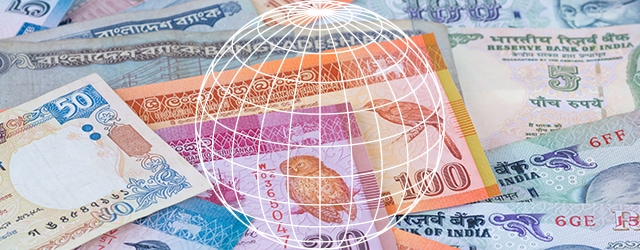India | Capital Markets

The International Finance Corporation (IFC) sold its first rupee-denominated bonds in London in November to attract international investment in India’s infrastructure. The landmark issue of 10-year “masala bonds” represented one of India’s first steps to promote the internationalization of the rupee. “The IFC masala bonds set a triple-A benchmark for offshore rupee issues [that] paves the way for more foreign investment to help meet the country’s private-sector development needs,” says Tarun Bajaj, joint secretary, department of economic affairs, at India’s Ministry of Finance.
UK chancellor of the Exchequer George Osborne says he personally pushed for the rupee bonds to be issued in the UK. He already has secured London as a global hub for the renminbi.
India’s central bank governor, Raghuram Rajan, is a major supporter of liberalizing controls on the rupee by encouraging growth of the offshore market and allowing international investors to invest in domestic Indian bonds. He says the rupee is a natural candidate for greater internationalization. The value of the rupee is market-determined, and India’s foreign exchange reserves are among the largest in the region.
The Indian rupee is rarely used for invoicing international trade, but when Rajan took over as governor of the Reserve Bank of India last year, he said that as trade expands, the RBI would push for more settlement in rupees. “This will also mean that we will have to open our financial markets more, for those who receive rupees to invest them back,” Rajan said. “We need to continue on the path of steady liberalization.”
The IFC’s 10-year masala bonds, yielding 6.3%, are the longest-dated rupee bonds ever sold internationally and the first to be listed on the London Stock Exchange. Proceeds of the 10 billion rupee ($165 million) offering will be invested in infrastructure bonds issued concurrently by Axis Bank, a private-sector bank in India.
The IFC in April doubled its masala bond program to $2 billion. It has previously issued three-, five- and seven-year masala bonds. Meanwhile, India’s Finance Ministry approved the IFC’s plan to introduce a $5 billion domestic rupee debt program, which it plans to initiate by the end of this year. The development of a domestic corporate bond market would help Indian companies to raise capital for long-term projects needed to support growth.
Through early November, international investors had placed $22 billion in India’s debt market and $14 billion into its equity market. Restrictions on the amount of debt available to foreign investors are the main impediment to future growth. The caps likely will be gradually relaxed to finance the current-account deficit.



